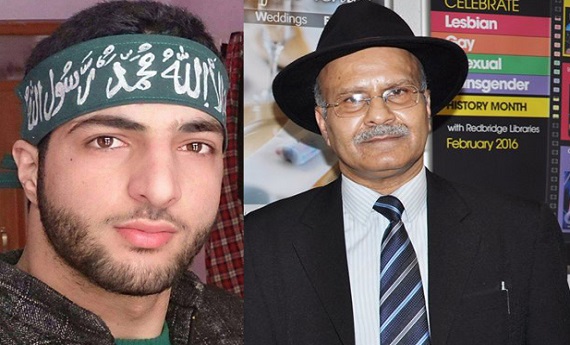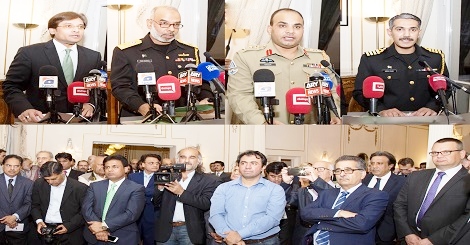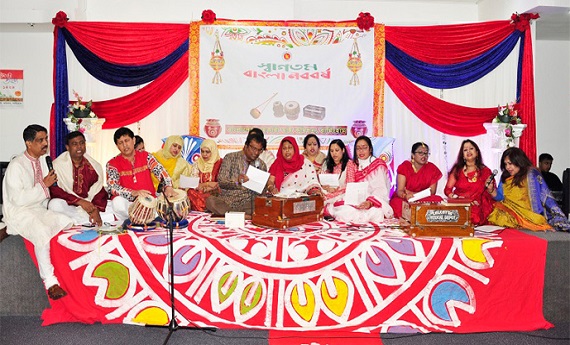UK
Indian Attempts to Prevent Sikh and Kashmiri Protests Backfire: Freedom Causes Highlighted
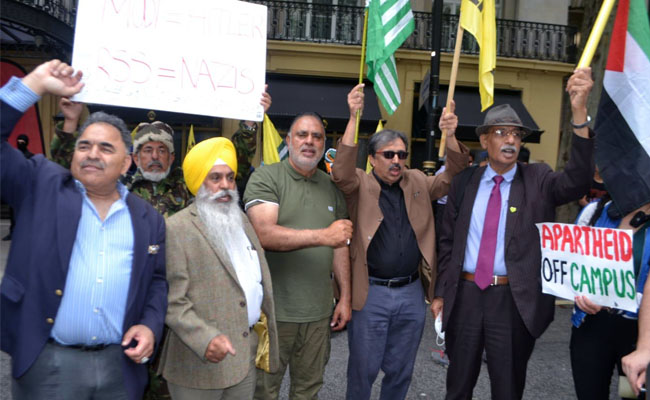
London, 15th August 2020: Despite concerted attempts over recent days by the India lobby to prevent protests by Sikh and Kashmiri organisations outside the Indian High Commission in London on Indian Independence Day, an array of leading diaspora groups conducted an impressive joint event that rattled the onlooking Indian officials and supporters alike.
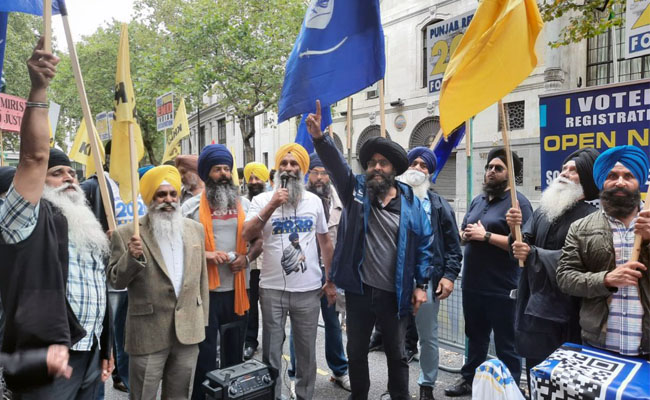
Raising the Khalistan flag and promoting the ‘Referendum 2020’ campaign, Sikh protestors exposed the hollowness of the Indian narrative around ‘independence’ in Indian-occupied Punjab. Asserting the Sikh nation’s right of self-determination under international law in the form of a sovereign independent state, they demanded an end to Indian colonialism and the massive human rights abuses, including genocide, that have underpinned it for decades. India’s recently renewed criminalisation of peaceful and democratic means of pursuing Sikh freedom, which has seen many Sikhs arrested under the infamous Unlawful Activities (Prevention) Act over past months, cannot and will not resolve the conflict. Similar protests today in Punjab (including the raising of a Khalistan flag in Moga), and by diaspora communities outside Indian embassies in the US and elsewhere in Europe underlined the futility of the Hindutva mission to extend its Hindu state project to Sikh territory.
Similarly, Kashmiri protestors in London and other cities around the world robustly condemned India’s decades-long aggression in Kashmir, including tens of thousands of extrajudicial killings, the unprecedented lockdown of the last year as well as its non-compliance with the UN Security Council’s requirements for a plebiscite. Earlier this month 17 of the UN’s human rights experts issued a call for urgent action in Kashmir amid international concerns about ongoing abuses against civilians there. Ever since Indian PM Modi’s unilateral attempt to annex internationally disputed territory, without any reference to the Kashmiris themselves or neighbouring states, the region has been plunged in to an explosive situation that demands immediate international intervention. China’s assertion of its claims in the Galwan Valley is most likely just a foretaste of the wider military conflict Hindutva’s belligerence threatens to visit on South Asia.
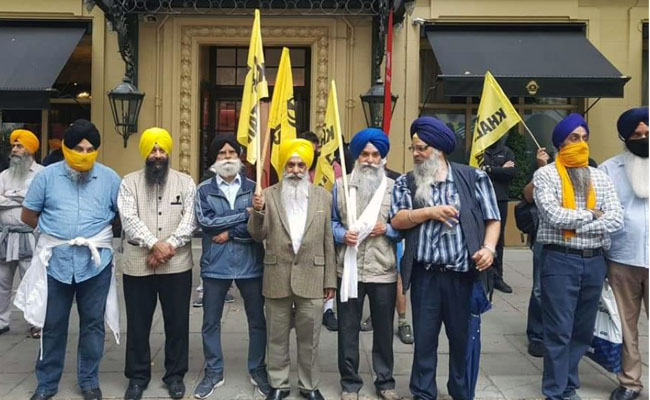
Systematic, massive human rights abuses, including the denial of freedom of expression and democratic mechanisms such as referenda or plebiscites in national homelands, and conflict with neighbouring states are the hallmarks of a fascist, colonialist state. Hindutva-inspired India has become the world’s biggest exponent of this immoral, hegemonical approach – as was amply demonstrated when PM Modi ostentatiously presided over the state’s Ram Mandir euphoric foundation laying on the site of the Babri Masjid in Ayodhya on 5th August. Following the tearing down of the mosque in 1992 by BJP fanatics and the deaths of thousands in the violence that followed, the Hindu-state has now been openly declared for all those who ever doubted it.
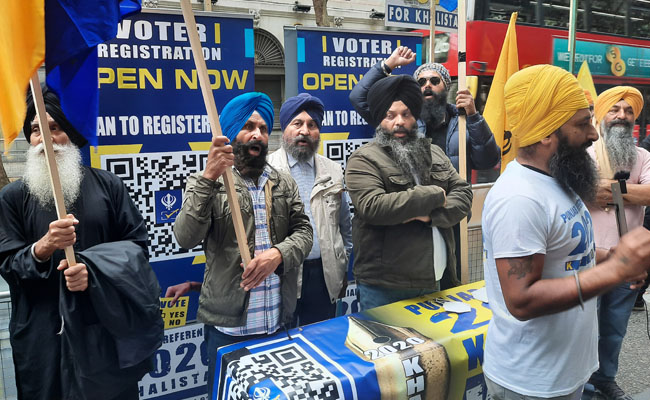
Kashmiri and Sikh leaders at the London protest pledged to support each other in dismantling Indian colonialist rule in their respective homelands. Despite the massive resources India is throwing at spying on and sabotaging their efforts, the diaspora groups leading the internationalisation of these freedom struggles vowed to maintain their freedom struggles, expose the Indian state’s abuses and to punish genocide perpetrators in accordance with international law. The success of the protest, which was covered by Sikh, Kashmiri and international media outlets, was not what the Delhi government would have wanted – no doubt their Hindutva-serving minions will be given firm orders to do better next time!
Ranjit Singh Srai
General Secretary, Council of Khalistan
Member, The World Sikh Parliament


